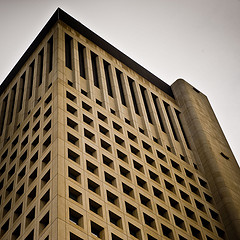OVERVIEW OF GST:
In 2000, the late Atal Bihari Vajpayee, the then prime minister of India, initiate a committee to draft new indirect tax law and i.e. GST which stands for Goods and Services Tax. It was launched to replace multiple indirect taxes in India. Such as excise duty, value-added tax (VAT), services tax, purchase tax, octroi, entry tax, luxury tax, and so on. Here, propertywala brings every fact and figure that you should know about GST in real estate.
DEFINITION:
The Goods and Service Tax Act was driven in Parliament on 29th March 2017 but it came into effect on 1st July 2017. It is the only tax that applies all over India and imposes on the supply of certain goods and services. However, GST does not replace customs duty, which is still required on imported goods and services. Different categories of products and services attract different tax rates under GST.
Now, we will go ahead with the GST regime which is given by our Honorable Prime Minister Shri Narendra Modi, In his words, the Goods and Services Tax (GST) is “a path-breaking legislation for New India”. Then, GST is not just a tax reform but a milestone in realizing Sardar Vallabhbhai Patel’s dream of building ‘Ek Bharat – Shrestha Bharat’.
GST APPLICABILITY IN REAL ESTATE:
| APPLICABLE – |
| 1. It is applicable to under-constructed flats only. 2. It is because the GST does not cover the real estate sector under its range. Therefore, the tax rate applicable on a property is charged under ‘work contracts. |
| NOT APPLICABLE – |
| 1. GST does not apply to ready-to-move-in flats, plots, and lands. 2. Upon completion and receiving the occupancy certificate i.e.(OC), the property is categorized as ready to move in. That is why a developer cannot charge GST on selling ready-to-move-in homes. |
GST RATE ON REAL ESTATE 2022:
Everyone has a dream of a house. Well! It is fine if you are planning to buy a property. Because buying the right property is one of the biggest achievements in life. So, home buyers in India have to pay GST on the purchase of under-construction properties such as flats, apartments, and bungalows. Before hurrying on to the process, the foremost thing you must ask yourself is, “what is the GST rate on real estate?”
| PROPERTY TYPE | GST RATE FROM APRIL 2019 |
| Affordable housing | 1% without ITC (Input Tax Credit) |
| Non-affordable housing | 5% without ITC |
WHAT IS ITC?
Input Tax Credit refers to the tax already paid by a person on any purchase of goods and/or services that are used or may use for business. Therefore, it is available as a deduction from tax payable.
AFFORDABLE HOUSING AS PER GST:
According to government norms, housing units worth up to Rs 45 lakhs are referred to as affordable housing in metro cities in which carpet area measures up to 60 sq. meters. The Delhi-National Capital Region, Bengaluru, Chennai, Hyderabad, the Mumbai-Kolkata are categorized as metropolitan regions. A housing unit in non-metro cities barring to be an affordable house, if it costs up to Rs 45 lakhs and has a carpet area of up to 90 square meters as mentioned in the given table.
| CITIES | PRICE | Carpet AREA (SQ/M) |
| METROS | up to Rs. 45 lakhs | 60 sq./m |
| NON- METROS | below Rs.45 | 90 sq./m |
SOME FACTS TO BE NOTED WHEN CONSIDERING GST IN REAL ESTATE:
- It does not subsume the stamp duty and registration charges, which you still have to pay.
- Seller increases the cost of ready-to-move-in properties to factor in the GST cost. So, overall the under-constructed properties are still cheaper than ready-to-move-in properties.
That’s all you need to know about GST when it comes to real estate.


